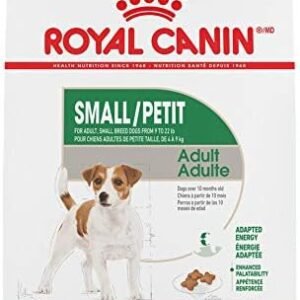
The Portuguese Podengo Pequeno, often simply referred to as the Podengo Pequeno, is a captivating breed that has been capturing the hearts of dog enthusiasts worldwide. In this comprehensive guide, we will delve into the world of the Portuguese Podengo Pequeno, exploring the unique characteristics that set them apart from other breeds. The choice of the right breed is a significant decision for prospective dog owners, as it profoundly influences a dog’s behavior, needs, and compatibility with your lifestyle. The Portuguese Podengo Pequeno, with its distinctive traits, is a breed well worth discovering.
Introduction
Let’s embark on our journey into the world of the Portuguese Podengo Pequeno with a fascinating fact – this breed is not only distinctive but also an integral part of Portuguese culture and history. Known for their charming appearance and unwavering loyalty, the Podengo Pequeno is truly one of a kind.
The Portuguese Podengo Pequeno, often translated as “small Portuguese hound,” is an ancient breed that has been in existence for centuries. What makes them unique is their status as a national treasure in Portugal, where they are not only beloved family pets but also skilled hunters. Their versatility, intelligence, and friendly demeanor have endeared them to dog enthusiasts around the world.
Choosing the right breed for your lifestyle is a crucial decision for any dog owner. Every breed has its own set of characteristics, and understanding them is vital to ensure a harmonious relationship between the dog and its owner. In this guide, we will explore the specifics of the Portuguese Podengo Pequeno breed, shedding light on their physical traits, temperament, care requirements, and more.
Portuguese Podengo Pequeno Breed Information
Here’s a table summarizing key information about the Portuguese Podengo Pequeno breed:
| Field | Information |
|---|---|
| Height | 8 to 12 inches |
| Weight | 13-15 pounds. |
| Life Span | 12 – 14 years |
| Good with | Families, active owners |
| Temperament | Intelligent, lively, loyal |
| Intelligence | Highly intelligent |
| Shedding Amount | Low to moderate |
| Grooming | Low grooming needs |
| Exercise Needs | High |
| Energy Level | Energetic |
| Barking Level | Moderate |
| Drool Amount | low drooling |
| Coat Length/Texture | Short, dense coat |
| Colors | Various |
| Patterns | Various |
Please note that some specific data about the Portuguese Podengo Pequeno breed, such as height, weight, and life span, may not be widely documented. However, the available information provides valuable insights into their characteristics and requirements.
Table of Contents
Breed History and Origin

Exploring Their Roots
The history of the Portuguese Podengo Pequeno is a fascinating journey through time. This breed has deep roots that date back several centuries, and its development is closely intertwined with the historical context of Portugal.
The Podengo Pequeno, also known as the “small Portuguese hound,” is one of three size varieties within the Podengo breed family. The breed is believed to have originated in Portugal, where it was primarily used for hunting purposes. While specific historical records are limited, it is widely acknowledged that the Podengo Pequeno’s ancestors are ancient Mediterranean hounds that were brought to the Iberian Peninsula.
The breed’s history is marked by its adaptability and versatility in various hunting terrains, ranging from dense forests to rocky cliffs. Podengo Pequenos were valued for their ability to chase game and alert hunters with their distinct barking. They were particularly skilled in hunting rabbits, making them an essential asset for Portuguese hunters.
Notable Traits
One of the remarkable traits of the Portuguese Podengo Pequeno is their petite size and well-proportioned physique. These dogs exhibit a harmonious balance between agility and strength, making them exceptional hunters in challenging terrains. Their sleek, compact bodies allow them to navigate through tight spaces, while their boundless energy keeps them on the move.
The Podengo Pequeno is known for its erect ears, which are not only endearing but also serve a practical purpose. These perky ears allow them to detect sounds from a distance, aiding in hunting and providing a heightened awareness of their surroundings.
Relevance of Origin
The origin of the Portuguese Podengo Pequeno is intricately tied to the breed’s characteristics and temperament today. Their historical role as hunting dogs has influenced their high energy levels, agility, and intelligence. These traits are still very much present in the modern Podengo Pequeno, making them a dynamic and engaging companion for active families.
In contemporary times, while their hunting role has evolved, their loyalty and intelligence remain unchanged. They are renowned for their adaptability, and their ability to be both a devoted family pet and a skilled hunter is a testament to their versatile nature.
The Portuguese Podengo Pequeno’s unique origin story is an essential part of their identity and a key reason for their distinctive qualities. In the following sections, we will delve further into their physical attributes, temperament, and care requirements, providing you with a comprehensive understanding of this exceptional breed. Whether you’re considering bringing a Podengo Pequeno into your family or simply exploring the world of dog breeds, the journey has just begun.
Understanding the Portuguese Podengo Pequeno Breed’s Traits

Physical Characteristics
The physical attributes of the Portuguese Podengo Pequeno are a defining aspect of the breed. These characteristics contribute to their overall appearance and suitability for various lifestyles.
Size
The precise height and weight of the Portuguese Podengo Pequeno may not be widely documented, but these dogs are known for their petite size. They fall into the category of small to medium-sized breeds. Their compact stature makes them well-suited for both indoor and outdoor living.
Coat Type, Color, and Distinguishing Features
The Podengo Pequeno boasts a short and dense coat that requires minimal grooming. This low-maintenance coat is a practical choice for those who prefer a breed with minimal shedding and grooming needs. In terms of color, Portuguese Podengo Pequenos come in various shades and patterns, offering a wide range of aesthetic choices for dog lovers. Distinguishing features often include their erect ears and a lively, alert expression.
Temperament Overview
The Portuguese Podengo Pequeno’s temperament is a delightful blend of intelligence, liveliness, and loyalty. Understanding their personality traits is essential for prospective owners to determine if this breed aligns with their expectations and lifestyle.
Suitability as Family Pets
Podengo Pequenos are known for their adaptability to family life. They tend to form strong bonds with their human family members, displaying loyalty and affection. Their small size and robust nature make them suitable for households with children. However, like any breed, early socialization and training are crucial to ensure a harmonious relationship between the dog and children.
Compatibility with Other Pets
In households with other pets, such ascats or smaller dogs, the Portuguese Podengo Pequeno can coexist peacefully. Their friendly and sociable nature often makes them open to forming positive relationships with other animals. Of course, individual temperament can vary, so proper introductions and supervision are recommended when introducing a Podengo Pequeno to other pets.
Environment Needs
The Portuguese Podengo Pequeno’s adaptability extends to their living environment. These dogs can thrive in various settings, making them suitable for both urban and rural lifestyles.
Space Requirements
While they may have a lively disposition, Portuguese Podengo Pequenos do not necessarily require a large yard. Their small size allows them to comfortably live in apartments or homes with smaller outdoor spaces. However, daily exercise is essential to keep them mentally and physically stimulated.
Temperature Sensitivity
Podengo Pequenos are well-suited to temperate climates. They have a short, dense coat that doesn’t provide significant protection against extreme cold. In colder climates, providing them with appropriate attire, like dog sweaters, during chilly weather is advisable. On the other hand, they are sensitive to heat, so they should be protected from excessive heat and provided with ample shade and water.
Common Behavioral Traits
Every breed has its unique set of behavioral traits. Understanding these traits helps owners manage their dogs effectively and address any specific behavioral issues that may arise.
Positive Traits
- Intelligence: Portuguese Podengo Pequenos are highly intelligent dogs. This intelligence makes them receptive to training and eager to learn new commands and tricks.
- Lively Nature: These dogs are known for their lively and playful nature. They have a zest for life and enjoy engaging in various activities with their families.
- Loyalty: Podengo Pequenos are exceptionally loyal to their owners. They form strong bonds and are dedicated companions.
Challenging Traits
- Barking Tendency: While they have a moderate barking level, Portuguese Podengo Pequenos may be prone to barking to alert their owners or in response to environmental stimuli. Consistent training and socialization can help manage excessive barking.
- Independent Thinking: These dogs can exhibit independent thinking, which can sometimes translate to stubbornness. Training should be patient and consistent to achieve desired behaviors.
- Energetic: Their high energy levels require daily exercise and mental stimulation. Inadequate exercise can lead to restlessness and behavioral issues.
Understanding these traits is the first step in ensuring a positive and fulfilling relationship with a Portuguese Podengo Pequeno. In the subsequent sections, we will delve into health and care, exercise needs, training, and more, providing you with a comprehensive view of this exceptional breed. Whether you are considering adding a Portuguese Podengo Pequeno to your family or are simply intrigued by this captivating breed, the journey of discovery continues.
Popularity and Recognition
The Portuguese Podengo Pequeno is a captivating breed, but its popularity varies around the world. To truly understand the breed’s current status, we’ll delve into its popularity today, including any trends in ownership. Additionally, we’ll explore the breed’s recognition by kennel clubs and breed organizations. Furthermore, we’ll discuss notable breed varieties within the Portuguese Podengo Pequeno breed.
Current Popularity
The Portuguese Podengo Pequeno is a beloved breed in its home country, Portugal, where it is considered a national treasure. However, its popularity outside of Portugal varies significantly and often depends on the accessibility of the breed and the preferences of dog enthusiasts in different regions.
Portugal: Beloved National Treasure
In Portugal, the Portuguese Podengo Pequeno has a dedicated following, and it’s a common sight in many households. Portuguese families appreciate this breed for its adaptability, loyalty, and hunting prowess. They are often kept as family pets and are still used for hunting, particularly in rural areas.
International Popularity
Outside of Portugal, the Portuguese Podengo Pequeno has a smaller but growing fan base. The breed’s unique combination of traits, such as its small size, intelligence, and lively nature, makes it appealing to dog lovers seeking a distinctive companion.
The breed has garnered attention in countries like the United States, where dog enthusiasts are drawn to its charm and versatility. While it may not be as popular as some other small breeds, it has a dedicated following.
Breed Recognition
Recognition by kennel clubs and breed organizations is crucial for a breed’s visibility and acceptance in the dog world. Let’s explore the Portuguese Podengo Pequeno’s status in terms of breed recognition:
The American Kennel Club (AKC)
As of my last knowledge update in January 2022, the Portuguese Podengo Pequeno was a recognized breed by the American Kennel Club (AKC). It was accepted into the AKC’s Foundation Stock Service (FSS) program, which is an important step towards full breed recognition. This program allows dogs to participate in various AKC events and activities while their pedigrees are established.
The Portuguese Podengo Pequeno’s journey towards full AKC recognition involves meeting specific criteria and proving its sustainable popularity within the United States.
Fédération Cynologique Internationale (FCI)
The Fédération Cynologique Internationale (FCI), an international canine organization, recognizes the Portuguese Podengo breed. Within this recognition, the breed includes three size varieties, namely the Grande, Médio, and Pequeno. These varieties are each considered distinct but share common characteristics, including their country of origin and their hunting heritage.
United Kennel Club (UKC)
The United Kennel Club (UKC) also recognizes the Portuguese Podengo Pequeno. It is classified under the Sighthound & Pariah Dog Group. UKC recognition provides an opportunity for Podengo Pequenos to compete in various dog events and shows.
Notable Breed Varieties
While the Portuguese Podengo Pequeno is a breed in its own right, it includes three distinctsize varieties or subtypes. These varieties share the same Portuguese heritage and hunting background, but they differ in size, which can affect their suitability for different lifestyles. Let’s explore each one:
1. Portuguese Podengo Pequeno (Small)
- Size: As the smallest of the three varieties, the Portuguese Podengo Pequeno typically stands at a height of 8 to 12 inches at the shoulder and weighs around 9 to 13 pounds.
- Characteristics: Known for their agility and adaptability, the Pequeno is a charming and lively breed that excels both as a family pet and a skilled hunter. They are cherished for their loyalty and compact size, making them suitable for various living environments, including apartments.
2. Portuguese Podengo Médio (Medium)
- Size: The Portuguese Podengo Médio is a medium-sized variety. They usually measure between 16 to 22 inches at the shoulder and weigh approximately 35 to 44 pounds.
- Characteristics: This variety shares the same lively and intelligent nature as the Pequeno, but it’s larger in size. The Médio is an excellent hunting dog with a keen sense of smell, and they are valued for their versatility in hunting various types of game.
3. Portuguese Podengo Grande (Large)
- Size: The Portuguese Podengo Grande is the largest of the three varieties, with a height ranging from 22 to 28 inches at the shoulder and a weight of approximately 44 to 66 pounds.
- Characteristics: Known for their strength and agility, the Grande is a skilled hunter, capable of pursuing larger game. They have a calm and composed demeanor and excel in both hunting and as a loyal family companion.
Each variety of the Portuguese Podengo shares common traits such as intelligence, adaptability, and loyalty, which are integral to the breed’s identity. The choice between these varieties depends on factors like the owner’s lifestyle, living environment, and specific preferences.
Health Considerations and Care
Ensuring the health and well-being of your Portuguese Podengo Pequeno is a fundamental responsibility for any dog owner. Like all breeds, Podengo Pequenos are susceptible to certain health issues. Regular veterinary check-ups, a balanced diet, proper exercise, and attentive care are essential to keep your beloved companion in the best possible health. In this section, we’ll discuss common health issues associated with the breed and offer insights into their lifespan and how to promote longevity.
Common Health Issues
Portuguese Podengo Pequenos are generally healthy dogs with a robust constitution, but like all breeds, they can be prone to certain health issues. Being aware of these potential health problems can help you monitor your dog’s well-being and take appropriate action when necessary. Common health issues in Portuguese Podengo Pequenos include:
- Dental Issues: Small breeds like the Podengo Pequeno can be prone to dental problems. Ensure you provide proper dental care, including regular teeth brushing and dental check-ups.
- Hip Dysplasia: Although not as common as in larger breeds, hip dysplasia can affect Podengo Pequenos. This condition involves the improper development of the hip joint, leading to pain and mobility issues.
- Luxating Patella: This condition involves the dislocation of the kneecap, causing pain and lameness. It can affect small breeds like the Podengo Pequeno.
- Eye Conditions: Some Podengo Pequenos may be prone to eye issues such as cataracts and progressive retinal atrophy (PRA). Regular eye examinations by a veterinarian can help detect and manage these conditions.
- Allergies: Just like humans, dogs can develop allergies to various substances. These allergies can manifest as skin irritations and other symptoms.
- Obesity: Podengo Pequenos are active dogs, but if not properly exercised and fed a balanced diet, they can become overweight. Obesity can lead to various health problems and should be avoided.
- Heat Sensitivity: These dogs are sensitive to heat due to their short, dense coat. It’s essential to protect them from excessive heat and provide plenty of water and shade during hot weather.
- Ear Infections: Their erect ears can sometimes be prone to ear infections. Regular cleaning and inspection of the ears can help prevent issues.
Regular veterinary check-ups are crucial for detecting and addressing health concerns in a timely manner. Your veterinarian can recommend specific preventative measures and treatments based on your dog’s individual health needs.
Lifespan and Longevity
The average lifespan of a Portuguese Podengo Pequeno typically ranges from 12 to 15 years. With proper care and attention to their health, some individuals may even exceed this range. To promote a longer and healthier life for your Podengo Pequeno, consider the following tips:
- Balanced Diet: Provide your dog with a balanced diet suitable for their age, size, and activity level. Avoid overfeeding, as obesity can lead to health issues.
- Regular Exercise: These dogs are energetic and require daily exercise to stay healthy and happy. Engage in activities like walks, playtime, and mental stimulation.
- Veterinary Care: Schedule regular check-ups with your veterinarian to monitor your dog’s health, administer vaccinations, and discuss preventive measures.
- Dental Care: Implement a dental care routine, which includes regular teeth brushing and dental check-ups, to prevent dental issues.
- Proper Grooming: While Podengo Pequenos have low grooming needs, regular grooming can help maintain their coat and overall hygiene.
- Heartworm and Flea Prevention: Use appropriate preventive measures to protect your dog from heartworms and fleas. Your veterinarian can recommend suitable products.
- Socialization and Training: Early socialization and consistent training can prevent behavioral issues and contribute to a happy and well-adjusted dog.
- Provide Shade and Water: Protect your Podengo Pequeno from extreme heat by offering shade and ensuring they have access to fresh water during hot weather.
- Eye and Ear Care: Pay attention to their eyes and ears, ensuring they are clean and free from infection.
- Preventative Health Measures: Follow your veterinarian’s recommendations for vaccinations, parasite control, and other preventative health measures.
By following these guidelines and providing your Portuguese Podengo Pequeno with love and care, you can help ensure a long, healthy, and joyful life for your canine companion. Remember that every dog is unique, so tailoring your care approach to their specific needs is essential.
Exercise and Activity Recommendations for Portuguese Podengo Pequeno
Portuguese Podengo Pequenos are an energetic and lively breed, and providing them with the right exercise and physical activity is essential to keep them healthy and happy. Their high energy levels and agility make them well-suited for various forms of exercise and play. Here’s a detailed exercise plan to help you meet the needs of your Podengo Pequeno:
Exercise Types

- Playtime: Engage in regular playtime sessions with your Portuguese Podengo Pequeno. These dogs have a playful nature and enjoy interactive games like fetch, tug-of-war, and hide-and-seek. These activities stimulate their minds and keep them physically active.
- Daily Walks: Take your Podengo Pequeno for daily walks. These walks provide an opportunity for them to explore the environment, which they enjoy. Aim for at least 30 to 45 minutes of walking each day. Consider varying your walking routes to keep things interesting for your dog.
- Agility Training: Portuguese Podengo Pequenos are highly intelligent and excel in agility training. Set up agility courses in your backyard or enroll them in agility classes at a local dog training facility. Agility exercises challenge their minds and keep them physically fit.
- Running and Sprinting: If you have a safe, enclosed area, allow your Podengo Pequeno to run and sprint freely. These dogs have an incredible burst of speed and will relish the opportunity to stretch their legs.
- Hiking: Take your dog on hiking adventures. The Portuguese Podengo Pequeno’s agility and endurance make them great hiking companions. They can handle various terrains, and the experience of exploring nature together can be rewarding for both you and your dog.
Exercise Duration
The duration of exercise varies depending on your dog’s age and energy level. Here are some general guidelines:
- Puppies: Young Podengo Pequeno puppies have lots of energy but should engage in shorter play and exercise sessions, around 15 to 20 minutes, multiple times a day. Puppies grow quickly, so it’s essential to ensure their joints are not overexerted.
- Adults: Adult Podengo Pequenos can handle longer exercise sessions. Aim for at least an hour of exercise per day, divided into multiple sessions. This can include a combination of walks, playtime, and training.
- Seniors: As your dog gets older, they may require slightly less exercise. However, it’s crucial to keep them active to maintain their overall health. Adjust exercise duration to your senior dog’s needs, but they should still engage in daily physical activity.
Exercise Frequency
Consistency is key when it comes to exercise for your Portuguese Podengo Pequeno. Daily exercise and play are essential to keep them content and prevent boredom-related behaviors.
Breed-Specific Exercise Needs
While Portuguese Podengo Pequenos are adaptable to various environments, they have some breed-specific exercise needs to consider:
- Mental Stimulation: These dogs are highly intelligent and thrive on mental challenges. Incorporate puzzle toys, obedience training, and problem-solving games to keep their minds engaged.
- Socialization: Regular socialization with other dogs is essential for Portuguese Podengo Pequenos. It helps them build positive interactions and prevents aggressive or anxious behaviors.
- Hunting Instinct: Keep in mind that Portuguese Podengo Pequenos have a strong hunting instinct. While they may not be used for hunting in modern times, you can provide them with toys and activities that tap into this natural instinct, such as scent games or hide-and-seek.
- Swimming: Some Podengo Pequenos enjoy swimming, so if you have access to a safe swimming area, consider introducing your dog to water activities. Swimming is an excellent full-body workout that’s easy on the joints.
Signs of a Well-Exercised Portuguese Podengo Pequeno
A well-exercised Podengo Pequeno is a happy and healthy one. Here are some signs that your dog is getting enough exercise:
- Relaxed Demeanor: Your dog should be relaxed and content after exercise, not restless or anxious.
- Healthy Weight: Regular exercise helps maintain a healthy weight. Ensure that your dog remains within the recommended weight range for the breed.
- Well-Behaved: Proper exercise helps curb unwanted behaviors like excessive barking, digging, or chewing.
- Engaged and Alert: An adequately exercised Podengo Pequeno will be alert, engaged, and ready for training or play.
Remember that individual exercise needs may vary, so it’s essential to tailor the exercise plan to your specific dog’s age, health, and preferences. Pay attention to your Podengo Pequeno’s signals and adjust the plan accordingly. Whether it’s an invigorating game of fetch, an agility session, or a leisurely walk, keeping your Podengo Pequeno physically and mentally active will result in a happy and well-rounded companion.
Nutrition and Feeding Guidelines for Portuguese Podengo Pequeno
Proper nutrition is a crucial aspect of caring for your Portuguese Podengo Pequeno. Their diet plays a significant role in their overall health, energy levels, and longevity. To ensure your Podengo Pequeno thrives, it’s essential to offer them a balanced diet tailored to their specific needs. In this section, we’ll provide you with feeding guidelines, dietary recommendations, and information about common dietary restrictions or allergies associated with the breed.
Dietary Recommendations

When determining the dietary requirements for your Portuguese Podengo Pequeno, several factors come into play, including their size, age, and activity level. These factors influence the type and amount of food your dog should consume.
Size
Portuguese Podengo Pequenos are small to medium-sized dogs. Their small stature means they have less room for food in their stomachs. It’s important to choose a high-quality dog food that is specially formulated for small breeds. Look for kibble that is smaller in size, making it easier for them to chew and digest.
Age
The age of your Podengo Pequeno also affects their nutritional needs:
- Puppy Stage: During the puppy stage (usually up to 12 months), your dog’s diet should support their rapid growth and development. Choose a puppy-specific dog food that is rich in essential nutrients, including protein, calcium, and phosphorus.
- Adult Stage: Once your Podengo Pequeno reaches adulthood, usually between 1 to 7 years of age, you can transition them to adult dog food. Look for formulas that provide a balance of protein and fat to maintain their energy and weight.
- Senior Stage: When your Podengo Pequeno becomes a senior, typically around 7 years and older, their nutritional needs may change. Senior dog food options are designed to support aging dogs with lower calories, joint support, and antioxidants.
Activity Level
The activity level of your Portuguese Podengo Pequeno is another crucial factor in determining their dietary requirements. These dogs are energetic and enjoy physical activities, so their calorie intake should align with their energy expenditure. If your Podengo Pequeno is highly active, they may need a diet higher in calories and protein. Conversely, if they are less active, you should adjust their food to prevent overfeeding.
Dietary Restrictions and Allergies
While Portuguese Podengo Pequenos are generally healthy dogs, there are some dietary restrictions and allergies that can affect them. It’s important to be aware of these to ensure your dog’s well-being.
Common Allergies:
- Grains: Some dogs, including Podengo Pequenos, may be sensitive or allergic to grains, such as wheat, corn, and soy. Opt for grain-free or limited-ingredient dog food if you suspect your dog has grain allergies. Always consult with your veterinarian before making dietary changes.
- Proteins: Allergies to specific protein sources can occur. Common allergenic proteins include beef, chicken, and dairy. If you notice signs of allergies like itching, digestive upset, or skin issues, work with your vet to identify the problematic protein and choose an alternative protein source.
- Food Additives: Artificial colors, flavors, and preservatives in dog food can trigger allergies in some dogs. Select high-quality dog food that avoids these additives.
Dietary Restrictions:
- Overfeeding: Portuguese Podengo Pequenos can gain weight quickly if overfed, so it’s essential to measure their food portions carefully. Consult with your vet to determine the right portion size based on your dog’s age, weight, and activity level.
- Human Food: While sharing your food with your furry companion may be tempting, some human foods can be harmful to dogs. Avoid feeding them items like chocolate, grapes, onions, garlic, and anything containing xylitol.
- Raw Food: Feeding your Podengo Pequeno a raw diet, while a popular trend, can pose risks of bacterial contamination and dietary imbalances. It’s important to consult your veterinarian before switching to a raw diet.
Feeding Schedule and Portion Control
Establishing a consistent feeding schedule and practicing portion control are essential for your Portuguese Podengo Pequeno’s health. Here are some guidelines to help you maintain a balanced feeding routine:
- Meal Frequency: Generally, adult Podengo Pequenos can be fed twice a day – once in the morning and once in the evening. Puppies may require more frequent meals, with three to four feedings a day.
- Portion Control: Measure your dog’s food portions to avoid overfeeding. The recommended amount will depend on factors like age, size, and activity level. Follow the feeding guidelines provided on the dog food label, or consult with your veterinarian for personalized recommendations.
- Avoid Free Feeding: Refrain from leaving food out all day for your dog to graze on. Limited mealtime encourages healthier eating habits.
- Monitor Your Dog’s Weight: Regularly assess your Podengo Pequeno’s weight and body condition. If you notice weight gain or loss, adjust their portion sizes accordingly.
- Fresh Water: Always provide your dog with access to fresh, clean water. Hydration is crucial for their health and well-being.
In conclusion, feeding your Portuguese Podengo Pequeno a balanced diet that suits their size, age, and activity level is essential for their overall health. Pay attention to any dietary restrictions or allergies, and consult with your veterinarian for personalized recommendations. Establishing a consistent feeding schedule and practicing portion control will help ensure your dog maintains a healthy weight and enjoys a long, happy life.
Personal Stories and Testimonials
In this section, we’ll take a closer look at the personal experiences of owners of the Portuguese Podengo Pequeno. These stories and testimonials provide valuable insights into what it’s like to share your life with this captivating breed. From their charming quirks to their incredible loyalty, the Portuguese Podengo Pequeno has left a lasting impression on those who have welcomed them into their homes.
Testimonial 1: A Loyal Companion

Name: Sarah T.
Location: Lisbon, Portugal
Podengo Pequeno: Bella
Experience:
Bella, my Portuguese Podengo Pequeno, is more than just a pet – she’s a loyal companion. In Portugal, the Podengo Pequeno is part of our culture, and I couldn’t imagine life without one. Bella has been with me for five wonderful years, and every day with her is a joy.
One of the things that struck me about Bella is her intelligence. She’s incredibly perceptive and learns commands quickly. Whether we’re hiking in the countryside or enjoying a lazy day at home, she’s always ready for an adventure. Bella’s liveliness and playfulness keep me on my toes, and her boundless energy is contagious.
Bella’s loyalty is unmatched. She’s always by my side, whether I’m happy, sad, or just in need of a furry friend to cuddle with. I often take her to local dog-friendly cafes, and her friendly nature has helped me strike up conversations with fellow dog lovers.
I must admit that she has a bit of a barking tendency, but it’s more of an endearing quality than a nuisance. Bella’s barks are her way of communicating and alerting me to anything out of the ordinary. With consistent training and socialization, it’s easy to manage.
Overall, the Portuguese Podengo Pequeno is a breed that has captured the hearts of many in Portugal, and Bella has certainly captured mine. She’s not just a dog; she’s family.”
Testimonial 2: A City Dweller’s Best Friend
Name: Alex H.
Location: New York, USA
Podengo Pequeno: Max
Experience:

“I never thought a small dog like Max, my Portuguese Podengo Pequeno, would be a perfect fit for city living, but I couldn’t have been more wrong. Max has brought so much joy to my life, and his adaptability to urban life has been truly impressive.
Living in a small apartment in New York City, I was initially concerned about getting a dog. I wasn’t sure if a small breed like Max would be comfortable in a limited space. However, he proved to be the perfect companion for city life. His small size made him well-suited for our cozy apartment, and he’s content with indoor play on rainy days.
Max’s intelligence has made training a breeze. He quickly picked up commands and even learned a few tricks. His alertness and lively nature mean that we’re always out and about, exploring the city together. Max has become a popular figure in our neighborhood, and people often stop to ask about his breed.
One of the things that surprised me most about Max is his friendly nature with other dogs and pets. We often visit the local dog park, and he gets along well with dogs of all sizes. His sociable temperament has made him a hit among other dog owners.
The Portuguese Podengo Pequeno may not be the most popular breed in the United States, but Max has certainly become a cherished part of my life. He’s a testament to the breed’s adaptability and charm.”
Testimonial 3: A Hunter’s Best Friend

Name: Juan M.
Location: Alentejo, Portugal
Podengo Pequeno: Rex
Experience:
“Rex, my Portuguese Podengo Pequeno, is a true hunter’s best friend. I live in the rural region of Alentejo, where hunting is a way of life for many of us. The Podengo Pequeno is the ideal companion for those who love hunting rabbits in the rugged terrain.
Rex is an exceptional hunter. His natural instincts and agility are truly impressive. He can navigate through dense underbrush and rocky cliffs with ease. His distinct barking lets me know when he’s on the trail, and he’s been invaluable in our hunting trips.
In addition to his hunting skills, Rex is also a loving and loyal family dog. When he’s not out in the fields, he’s by our side, providing companionship and guarding our home. He’s great with our children and has formed strong bonds with the family.
One thing to keep in mind with a hunting breed like the Portuguese Podengo Pequeno is their exercise needs. Rex has a surplus of energy, and daily exercise is a must. It’s a commitment, but it’s a commitment I’m more than willing to make for this extraordinary breed.
The Podengo Pequeno is still a treasured part of our culture in Alentejo, and Rex embodies everything we love about this breed – loyalty, hunting prowess, and a place in our hearts.”
These personal stories and testimonials from Portuguese Podengo Pequeno owners highlight the breed’s versatility, adaptability, and the deep bonds they form with their human families. Whether in Portugal, the United States, or elsewhere in the world, these dogs have made a significant impact on the lives of those who have welcomed them into their homes.
The Cost of Owning a Portuguese Podengo Pequeno
Owning a dog comes with various expenses, and understanding the costs associated with Portuguese Podengo Pequeno ownership is essential. From initial investments to ongoing expenses, budgeting for your dog’s needs ensures their well-being and your financial peace of mind. Here’s a breakdown of the costs you can expect when bringing a Podengo Pequeno into your life.
Initial Expenses
- Purchase Price: The initial cost of acquiring a Portuguese Podengo Pequeno puppy varies based on factors such as the breeder’s reputation, the puppy’s pedigree, and geographic location. It’s essential to choose a reputable breeder who conducts health screenings and provides proper care for the puppies. Prices can range from $1,000 to $3,000 or more.
- Vaccinations and Microchipping: Shortly after bringing your puppy home, you’ll need to ensure they receive essential vaccinations to protect them from common diseases. Microchipping is also recommended for identification and costs around $50 to $100.
- Spaying or Neutering: If your dog is not intended for breeding, spaying (for females) or neutering (for males) is a responsible choice. The cost typically ranges from $200 to $400, depending on your location and the dog’s age.
- Initial Supplies: You’ll need to invest in supplies like a dog bed, crate, leash, collar, food and water dishes, and toys. These initial expenses can add up to around $100 to $300.
- Training and Socialization: Enrolling your Podengo Pequeno in a puppy training class is an excellent investment in their behavior and social skills. Classes can cost $100 to $200 or more, depending on the program’s duration and quality.
- Home Preparations: Dog-proofing your home may require minor investments, such as baby gates or pet-proofing products. These can cost around $50 to $100.
Ongoing Expenses
- Food: Your dog’s diet is a recurring expense. High-quality dog food can cost approximately $20 to $60 per month, depending on the brand and portion size. Treats and supplements are additional costs.
- Healthcare: Regular veterinary check-ups and preventative care, including vaccinations and flea and tick control, will amount to a few hundred dollars per year. It’s crucial to budget for unexpected medical expenses as well.
- Grooming: Portuguese Podengo Pequenos have low grooming needs, but occasional grooming costs, like nail trimming and ear cleaning, may total around $100 annually.
- Training and Socialization: Continuing your dog’s training and socialization throughout their life is essential. Training classes, mental stimulation toys, and socialization activities are part of the ongoing cost.
- Pet Insurance: Consider the option of pet insurance to help cover unexpected medical expenses. Monthly premiums can range from $20 to $50 or more, depending on the coverage.
- Dog Accessories: Ongoing expenses for toys, bedding, collars, and leashes can amount to $100 to $200 per year.
- Exercise and Activities: Plan for expenses related to outdoor activities, such as hiking gear, dog park fees, and pet-friendly vacations.
- Boarding or Pet Sitting: If you need to travel and can’t take your dog with you, budget for boarding kennels or pet sitters, which can cost around $30 to $50 per night.
- Emergency Fund: Having an emergency fund for unexpected expenses, such as accidents or sudden illnesses, is crucial. Aim to set aside a few hundred dollars or more.
It’s important to keep in mind that these cost estimates are approximate and can vary based on your location, your dog’s specific needs, and your preferences. Owning a Portuguese Podengo Pequeno is a long-term commitment, and responsible budgeting ensures their well-being and happiness throughout their life.
Grooming and Care for Portuguese Podengo Pequeno
Grooming and care are essential aspects of ensuring the well-being and happiness of your Portuguese Podengo Pequeno. This section provides you with general advice on grooming and maintaining a healthy and happy dog. We will also recommend specific accessories and care products tailored to the Portuguese Podengo Pequeno breed’s needs.
Grooming Guidelines
The Portuguese Podengo Pequeno is known for its low grooming needs due to its short and dense coat. However, regular grooming and care routines are still necessary to keep your dog healthy and comfortable. Here are some grooming guidelines:
Brushing:
- Frequency: While they have a short coat, it’s a good practice to brush your Podengo Pequeno weekly. This helps remove loose hair, distribute natural oils, and keep the coat clean.
- Brush Type: Use a soft-bristle brush or a rubber grooming mitt. These tools are gentle on their short coat and skin.
Bathing:
- Frequency: Bathe your Podengo Pequeno as needed, typically every 2-3 months or when they get dirty. Over-bathing can strip their coat of natural oils.
- Shampoo: Use a mild dog shampoo to avoid skin irritation. Be sure to rinse thoroughly to remove all soap residue.
Ears:
Ear Cleaning: Check their ears regularly for dirt, wax, or signs of infection. Use a veterinarian-recommended ear cleaner and gently clean the ears when necessary.
Nails:
Nail Trimming: Keep their nails trimmed to a safe length. If you hear their nails clicking on the floor, it’s time for a trim. You can do it at home or seek professional grooming services.
Dental Care:
Oral Health: Dental hygiene is crucial. Brush your Podengo Pequeno’s teeth regularly to prevent dental issues. Dental chews and toys can also help with oral health.
Eyes:
Eye Cleaning: Check their eyes for any signs of discharge or irritation. Gently wipe the corners of their eyes with a clean, damp cloth as needed.
Specific Accessories and Care Products
Tailoring your care routine to the specific needs of your Portuguese Podengo Pequeno is important. Here are some accessories and care products that can enhance their well-being:
- Dog Harness: Opt for a comfortable and secure harness for walking and outings. Since Podengo Pequenos can be lively and prone to pulling on a leash, a harness can provide better control and prevent neck strain.
- Interactive Toys: Keep your Podengo Pequeno mentally stimulated with interactive toys. Puzzle toys and treat-dispensing toys are great for this breed’s high intelligence.
- Dog Nail Clippers: If you choose to trim your dog’s nails at home, invest in a high-quality pair of dog nail clippers. Safety is paramount when trimming nails.
- Gentle Dog Shampoo: Look for a mild and hypoallergenic dog shampoo to use during baths. This is especially important for dogs with sensitive skin.
- Toothbrush and Dog Toothpaste: Dental hygiene is crucial. Use a dog-specific toothbrush and toothpaste to maintain your Podengo Pequeno’s oral health.
- Ear Cleaner: A gentle and vet-recommended ear cleaner helps maintain clean and healthy ears. Regular ear cleaning can prevent infections.
- Soft-Bristle Brush or Grooming Mitt: To ensure a smooth and comfortable brushing experience for your dog, choose a soft-bristle brush or a grooming mitt designed for short-haired breeds.
- Dental Chews: Dental chews are a tasty way to help keep your dog’s teeth clean. Look for high-quality chews designed for dental health.
- Stain and Tear Remover: If your Podengo Pequeno is prone to tear staining, consider a stain and tear remover to keep their facial fur clean and free from discoloration.
- Ear Protection for Water Activities: If your dog enjoys swimming, consider ear protection products designed to keep water out of their ears, preventing potential ear infections.
Remember that the specific needs of your Portuguese Podengo Pequeno may vary, so it’s essential to tailor your grooming and care routine to their individual requirements. Regular grooming sessions also offer an excellent opportunity to bond with your dog and ensure their overall well-being.
Choosing and Adopting a Portuguese Podengo Pequeno Dog Breed
Adopting a dog is a significant decision that brings joy, companionship, and responsibility into your life. When considering a Portuguese Podengo Pequeno for adoption, you’re not only welcoming a furry friend into your home but also contributing to the well-being of a breed with a rich history. In this section, we’ll explore the reasons for adopting a Portuguese Podengo Pequeno, the research and preparation involved, the adoption process, and important ethical considerations.
Reasons for Adoption
Adopting a dog is a heartfelt choice that offers numerous benefits, both for you and the dog. When it comes to the Portuguese Podengo Pequeno breed, there are several compelling reasons to consider adoption:
1. Giving a Second Chance
One of the most significant reasons to adopt a Portuguese Podengo Pequeno or any rescue dog is the opportunity to give them a second chance at a happy and fulfilling life. Many dogs in shelters or rescues have faced challenging circumstances, and by adopting them, you provide them with the love and care they deserve.
2. Breed Expertise
When you adopt from a reputable rescue or breed-specific organization, you can benefit from the organization’s expertise in the breed. They often have a deep understanding of Portuguese Podengo Pequeno-specific needs and can help match you with a dog that fits your lifestyle.
3. Health and Behavioral Assessment
Rescue organizations typically assess the health and behavior of the dogs in their care. This means you’ll have a better understanding of your adopted dog’s medical history and temperament, making it easier to meet their needs and integrate them into your family.
4. Wide Range of Ages
Adopting allows you to choose a Portuguese Podengo Pequeno of any age, from puppies to adults. Depending on your lifestyle and preferences, you can find a dog that suits your needs. Puppies require more training and attention, while adult dogs may already have established behaviors.
5. Avoiding Unethical Breeders
By choosing adoption, you avoid supporting unethical breeding practices, such as puppy mills. Responsible breeders prioritize the health and well-being of their dogs, but not all breeders adhere to these standards. Adoption helps reduce the demand for puppies from questionable sources.
Research and Preparation
Before bringing a Portuguese Podengo Pequeno into your home, thorough research and preparation are essential. Here are some steps to help you get ready for adoption:
1. Learn About the Breed
Begin by learning about the Portuguese Podengo Pequeno breed. Understand their temperament, exercise needs, grooming requirements, and any specific health considerations. This knowledge will help you make an informed decision and provide the best care for your new companion.
2. Assess Your Lifestyle
Evaluate your lifestyle to determine if it aligns with the needs of the breed. Portuguese Podengo Pequenos are active dogs that require regular exercise and mental stimulation. If you enjoy outdoor activities and have the time to engage with your dog, this breed could be an excellent fit.
3. Financial Responsibilities
Owning a dog comes with financial responsibilities, including food, grooming, medical expenses, and other necessities. Ensure that you have the resources to provide proper care for your Portuguese Podengo Pequeno.
4. Finding Reputable Rescues
Research reputable rescue organizations or breed-specific rescues that specialize in Portuguese Podengo Pequenos. Check their reviews, speak with their staff, and ensure they adhere to high standards of animal welfare.
5. Home Preparation
Prepare your home for your new dog. This includes creating a safe and comfortable environment, puppy-proofing if necessary, and having all the essential supplies such as food and water bowls, a leash, collar, crate, and bedding.
Adoption Process
The adoption process for a Portuguese Podengo Pequeno typically involves several steps to ensure that both you and the dog are a good match. The specific process may vary depending on the rescue organization, but here are the general steps involved:
1. Application
Start by filling out an adoption application provided by the rescue organization. This application gathers information about your living situation, experience with dogs, and your expectations for your new pet.
2. Interviews and Home Visits
The rescue may conduct interviews and, in some cases, home visits to assess your suitability as a dog owner and ensure that your home is a safe and appropriate environment for a Portuguese Podengo Pequeno.
3. Adoption Fee
Most rescue organizations charge an adoption fee, which helps cover the costs of vaccinations, spaying or neutering, and other medical care. The fee varies, so be sure to inquire about it in advance.
4. Meet the Dogs
Once your application is approved, you’ll have the opportunity to meet and interact with the available Portuguese Podengo Pequenos. This is a crucial step in finding a dog that you connect with and who fits your lifestyle.
5. Adoption Agreement
If you find a dog that’s the perfect match, you’ll be required to sign an adoption agreement. This document outlines your responsibilities as a dog owner and the rescue’s policies.
Breeding and Ethical Considerations
It’s important to be aware of ethical considerations related to breeding, especially when it comes to adopting a Portuguese Podengo Pequeno.
Responsible Breeding
While adoption is a wonderful option, responsible breeding is also essential for the well-being of the breed. Ethical breeders prioritize the health and genetics of their dogs, ensuring they are free from hereditary diseases and bred for the betterment of the breed.
Health Screening
Reputable breeders conduct health screenings for their breeding dogs to detect and eliminate hereditary health issues. These screenings include evaluations for hip and elbow dysplasia, eye conditions, and other potential health concerns.
Genetic Diversity
Maintaining genetic diversity is crucial for the long-term health and vitality of a breed. Ethical breeders work to maintain genetic diversity and avoid inbreeding, which can lead to health problems.
When considering adoption, keep in mind that responsible breeders also play a valuable role in preserving the Portuguese Podengo Pequeno breed. If you decide to purchase a dog from a breeder, thoroughly research and choose one with a reputation for ethical practices and a commitment to the breed’s welfare.
FAQ
Is the Portuguese Podengo Pequeno hypoallergenic?
No, the Portuguese Podengo Pequeno is not hypoallergenic. While they have a short and dense coat with low shedding, no dog breed is entirely hypoallergenic.
Are Portuguese Podengo Pequenos good for apartment living?
Yes, Portuguese Podengo Pequenos can adapt well to apartment living due to their small size, but they require daily exercise and mental stimulation to thrive in smaller spaces.
Do they get along with children
Portuguese Podengo Pequenos are generally good with children. They are loyal and often form strong bonds with their human family members. Early socialization and supervision are essential for a harmonious relationship.
Do they make good watchdogs?
Yes, they have a moderate barking tendency and are alert dogs, which makes them effective watchdogs. They will alert you to any potential intruders or unusual activities.
What is the typical lifespan of a Portuguese Podengo Pequeno?
The exact lifespan is not widely documented, but smaller dog breeds tend to have longer lifespans. They can live anywhere from 12 to 15 years or more.
Are they good for novice dog owners?
Portuguese Podengo Pequenos are intelligent but can sometimes exhibit independent thinking, which might require patient training. They are suitable for owners who are committed to training and providing the necessary exercise and mental stimulation.
Do they have any known hereditary health issues?
While they are generally a healthy breed, some potential health concerns can include hip dysplasia, eye conditions, and dental issues. Regular veterinary check-ups are recommended.
Can Portuguese Podengo Pequenos be left alone for long periods?
They are social dogs and can become anxious or develop behavioral issues if left alone for extended periods. It’s best to ensure they have companionship or a pet sitter if you’re away for long hours.
Are they prone to obesity?
Portuguese Podengo Pequenos have high energy levels and can gain weight if not provided with enough exercise. Maintaining a balanced diet and ensuring regular physical activity is essential to prevent obesity.
Do they require a lot of grooming?
No, their short and dense coat has low grooming needs. Regular brushing to remove loose hair and occasional baths are usually sufficient to keep their coat in good condition. However, they might require dental care due to their susceptibility to dental issues.
Conclusion
In this comprehensive guide, we’ve embarked on a journey into the unique and fascinating world of the Portuguese Podengo Pequeno. This breed, often referred to as the Podengo Pequeno, is a captivating and versatile canine companion. We’ve explored the breed’s rich history, physical traits, temperament, and much more, providing you with valuable insights into the world of the Podengo Pequeno.
Recapping the essential information covered in this article, we’ve learned that the Portuguese Podengo Pequeno is a small to medium-sized breed with a short, dense coat and a wide range of colors and patterns. Their physical attributes, including their erect ears, reflect their adaptability and agility, which were essential for their historical role as hunters.
In terms of temperament, Podengo Pequenos are known for their intelligence, liveliness, and loyalty. They make excellent family pets, forming strong bonds with their human family members. Their compatibility with other pets and adaptability to various living environments make them a versatile choice for dog owners.
It’s crucial to emphasize the importance of responsible ownership when considering a Portuguese Podengo Pequeno or any breed. Proper care, training, and socialization are key elements in nurturing a happy and well-adjusted dog. Whether you’re a seasoned dog owner or a first-time pet parent, the commitment to providing a loving and supportive environment is essential.
Furthermore, we encourage potential dog owners to explore adoption options. Many Podengo Pequenos and other wonderful dogs are in need of loving homes. Consider visiting local shelters or contacting rescue organizations dedicated to this breed. Adoption not only gives a dog a second chance at a happy life but also brings immense joy and fulfillment to the adopting family.
As we conclude this guide, we hope you’ve gained a comprehensive understanding of the Portuguese Podengo Pequeno breed. Whether you’re considering adding one to your family or simply exploring the world of dog breeds, the journey of discovery is a rewarding one. The Portuguese Podengo Pequeno, with its unique history, charming traits, and versatile nature, is indeed a breed well worth discovering and welcoming into your life.



















